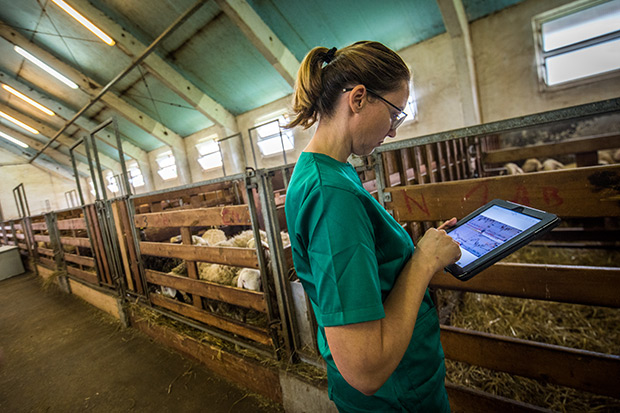USDA’s loan repayment program pays out $9M in 2023

USDA’s loan repayment program pays out $9M in 2023
AVMA news
Approximately $9 million went toward strengthening veterinary services in underserved rural areas last year as part of the federal Veterinary Medicine Loan Repayment Program (VMLRP). It provides up to $25,000 annually toward veterinary educational debt in exchange for up to three years of service in a veterinary shortage area designated by the U.S. Department of Agriculture (USDA).
In April, the USDA’s National Institute of Food and Agriculture (NIFA) published its VMLRP report for federal fiscal year 2023 (FY23), which covers October 1, 2022, to September 30, 2023. During that time, $8.6 million was awarded to 88 veterinarians.
Awardees and shortage situations
The VMLRP is designed to recruit and retain food animals and public health veterinarians in USDA-designated shortage areas by assisting with the obstacle of educational debt.

Since 2010, NIFA has received 2,197 applications from 1,530 unique applicants and made 883 awards to veterinarians across the country.
VMLRP awardees are eligible to reapply for continued program participation in their originally awarded shortage area. A renewal agreement repayment amount varies based on the applicant’s eligible veterinary school educational debt remaining after their first agreement period, according to the USDA.
Highlights from the most recent VMLRP report include the following:
- Applicants to VMLRP last year applied an average of four years after graduating from veterinary school, with all applicants graduating between 2003-23.
- The largest number of applicants had graduated from Iowa State University and Washington State University with 15 and 14 alumni, respectively.
- The average eligible veterinary student debt for applicants was $148,900. The average eligible veterinary student debt for new awardees was $162,785 compared with $103,366 for renewal awardees.
- Kansas had the highest number of awardees for an individual state with 12 new and renewal awardees.
Shortage types and needs
During the 2023 cycle, NIFA received 136 applications—109 new and 27 renewals—all of which were awarded, and a total of 237 veterinary shortage situations were designated in 47 states—the highest total to date. Of these, NIFA made awards in 60, or 25% of the shortage areas. In addition, 20 renewal applicants received awards in previously designated shortage areas.
Specifically, NIFA has established three VMLRP shortage classifications according to type of practice and percentage of full-time–equivalent employees needed to serve the specific needs of each shortage situation area. Percentage FTE is based on a 40-hour workweek.
Type 1 shortages are considered at least 80% FTE food animal practice. Of the 28 type 1 shortages, six (21.4%) were filled in five states. In addition, one type 1 renewal award was made from a pre-FY23 designation.
Type 2 shortages are in rural areas and require at least 30% FTE dedicated to food animal medicine. Of the 173 type 2 shortages, 47 (27.2%) were filled in 26 states. Plus, 16 type 2 renewal awards were made from a pre-FY23 designation.
Type 3 shortages require at least 49% FTE in public practice. NIFA reserves 10% of VMLRP awards for type 3 shortage situations. Seven (19.4%) shortages were filled in six states. In addition, three type 3 renewal awards were made from a pre-FY23 designation.
Relevant legislation
Of the funding total from last year’s VMLRP, $2.4 million was designated to offset federal tax liability for awardees. This is a tax the AVMA has been working with Congress to eliminate through the Rural Veterinary Workforce Act (H.R. 4355/S. 2829), formerly known as the Veterinary Medicine Loan Repayment Program Enhancement Act. The USDA recently called for passage of the Rural Veterinary Workforce Act through its proposed FY25 budget.
The bill would help expand the program by ending the federal taxation of VMLRP awards. The bill also addresses the challenges that ranchers and farmers in rural communities face in obtaining essential veterinary services for livestock.
